Return Flight
Charlie Faulkner || June/July 2021
“There’s evidence of pigeon husbandry in Egypt
more than 5,000 years ago, and today there are
pigeon fancying traditions in Thailand, Turkey,
Romania, South Africa, Afghanistan, and beyond.”
“He was slight in stature and withdrawn,
but he connected with his birds.”
“If We Can Soar,” Shanna B. Tiayon
Standing in his garden in west Kabul, Afghanistan, 54-year-old Mohammad Nasir throws bird feed to his pigeons.
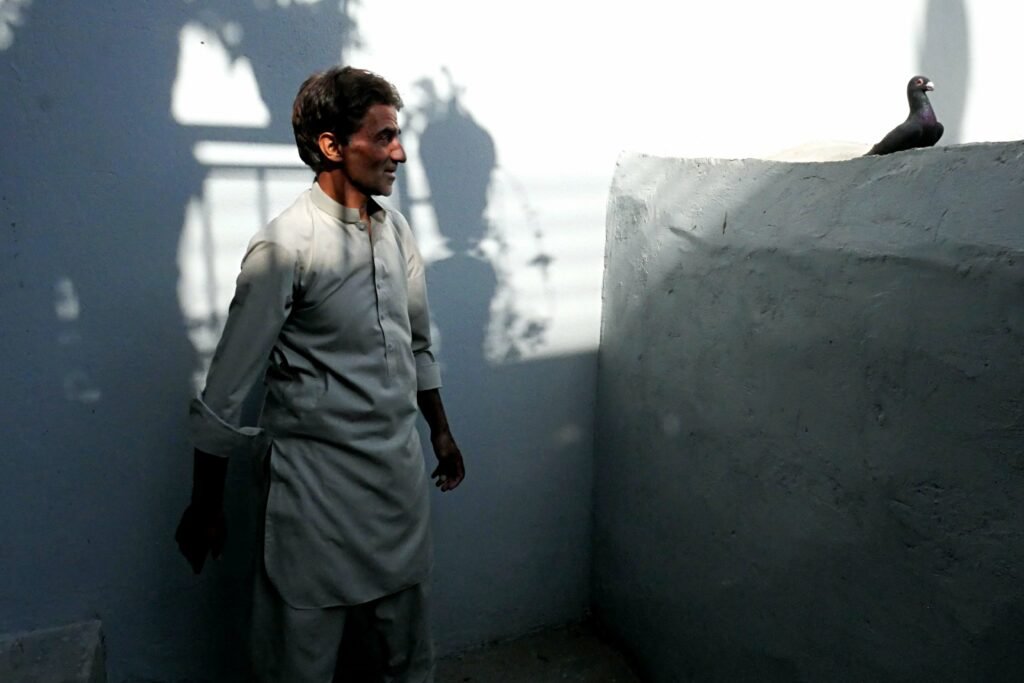
Asked why his birds are so important to him, he struggles to find the words. He just repeats that he loves them and would be devastated if anything should happen to them.
His birds give him a purpose, having not worked for three years. Afghanistan’s unemployment rate stood just over 11% in 2020, but it has risen as a result of the Covid-19 crisis and is expected to continue increasing because of the prolonged pandemic and deteriorating security situation.
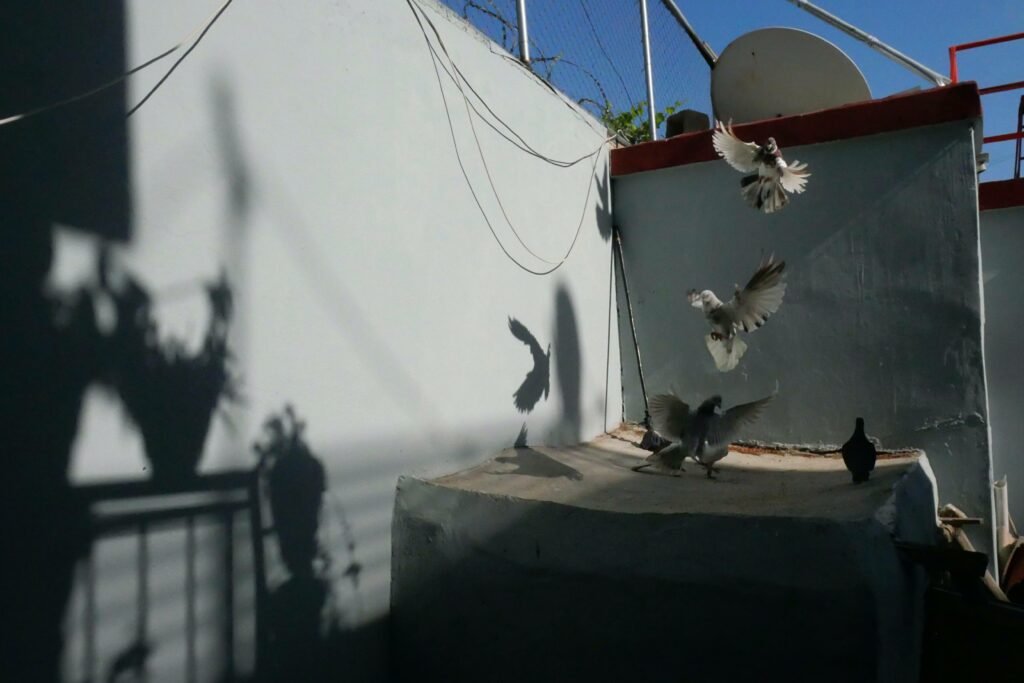
Nasir fled Kabul during the Afghan Civil War and spent 12 years in Iran, returning to Afghanistan 18 years ago. One of the first things he did on his return was buy 20 pigeons, having watched his uncle’s birds in awe when he was a boy. He built their birdhouse in a day. He usually buys them when they’re one-and-a-half to two years old, and they live for around 10 years.
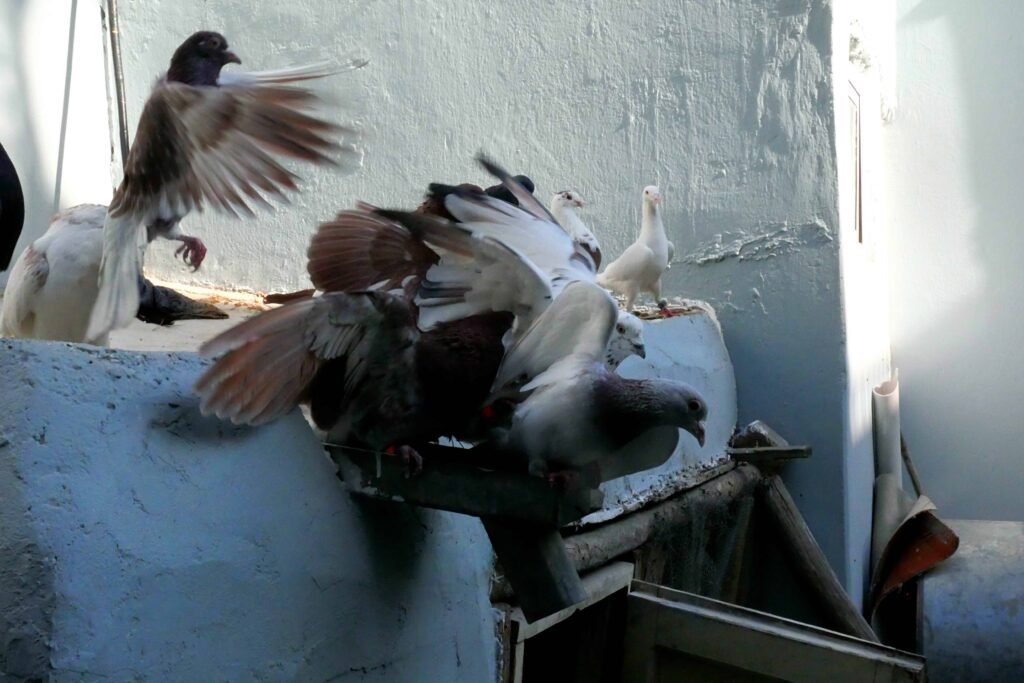
During the summer he lets them out in the evening, after the heat of the day has subsided, otherwise they’d struggle to fly. The sound of their flapping wings as they soar overhead offers solace amid the frequent terrorist attacks and surging conflict that blights the country.
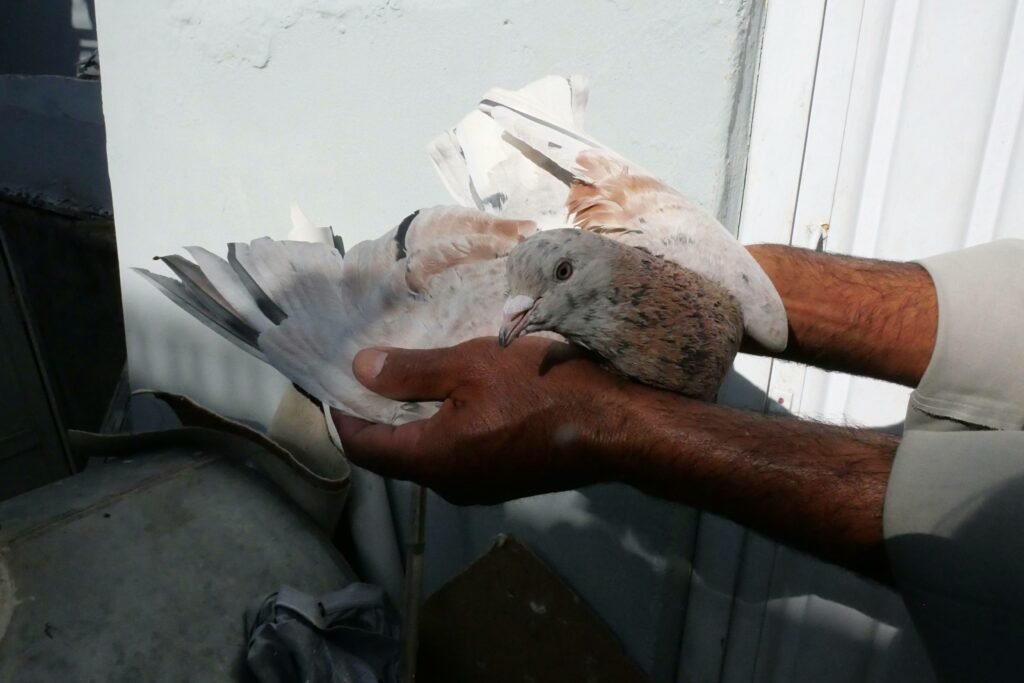
His newest addition has a beautiful mix of white, grey, and pinkish-red. He handles her gently, his experience with birds obvious; she is one of his favorites because of her coloring.
He only spends a few hundred Afghanis ($2.50-$4 USD) on each bird, though they can cost as much as $300. His favorite is a plain red that “never flies away, it’s very loyal to me,” he says. He says he finds it mesmerizing to watch the birds as they fly every evening.
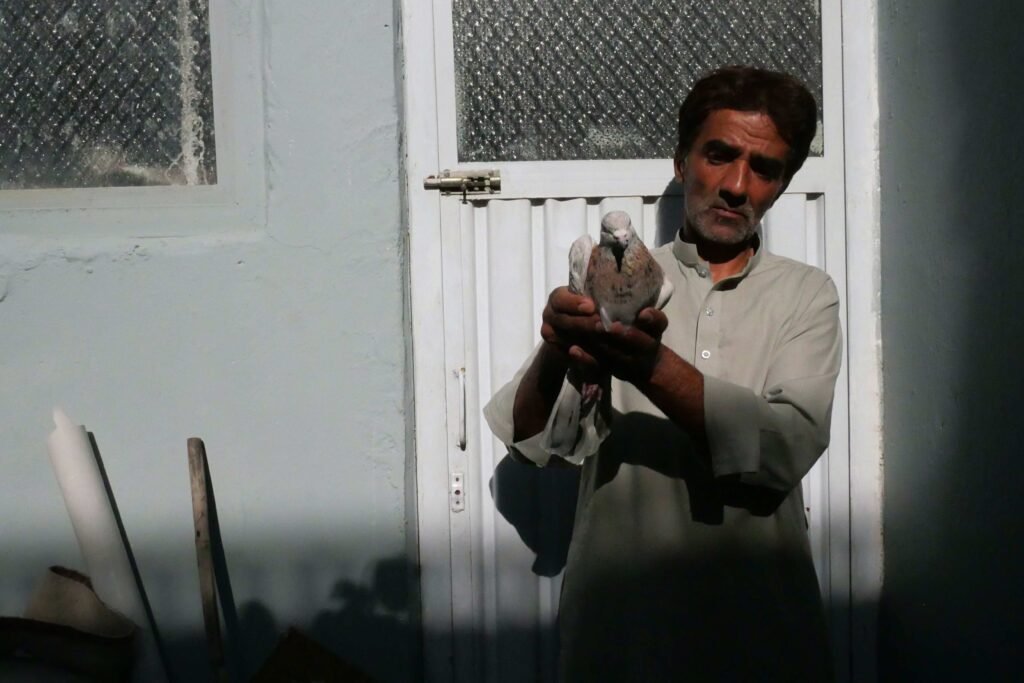
The relationship pigeon fanciers have with their birds is fascinating. It seems no matter what’s going on in their world, the moments they share with their pigeons are cherished as moments of belonging — a safe space without responsibility or judgement, a freedom through their birds.
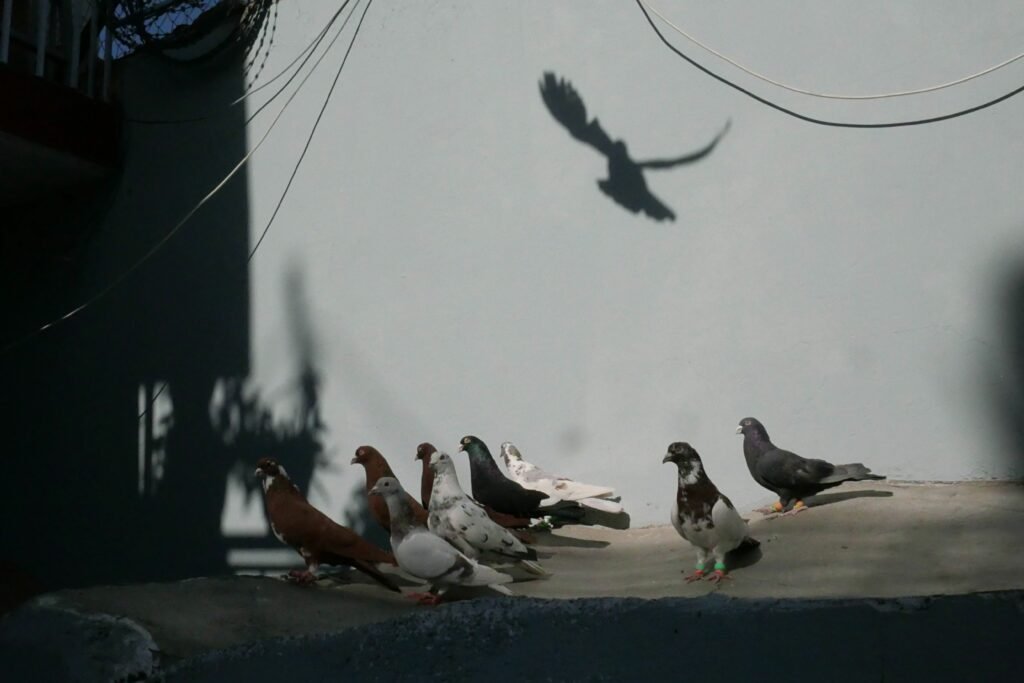
The men who take up this hobby have a deep passion for their pigeons but are often skeptical of those not involved with the sport. They can be reluctant to include outsiders, as if they accept that spectators will never fully understand the significance of these birds.
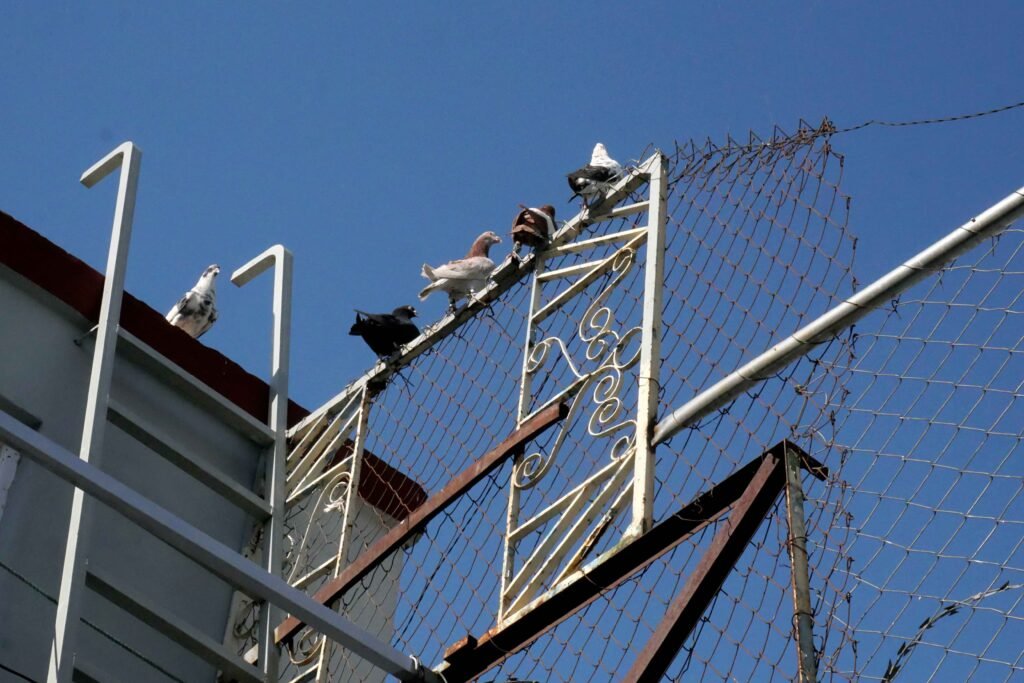
In this area of the city, in a district called Afshar, the buildings are not built high, making it a perfect location to fly pigeons. “I just buy pigeons to fly them, I’m not interested in breeding them,” says Nasir.
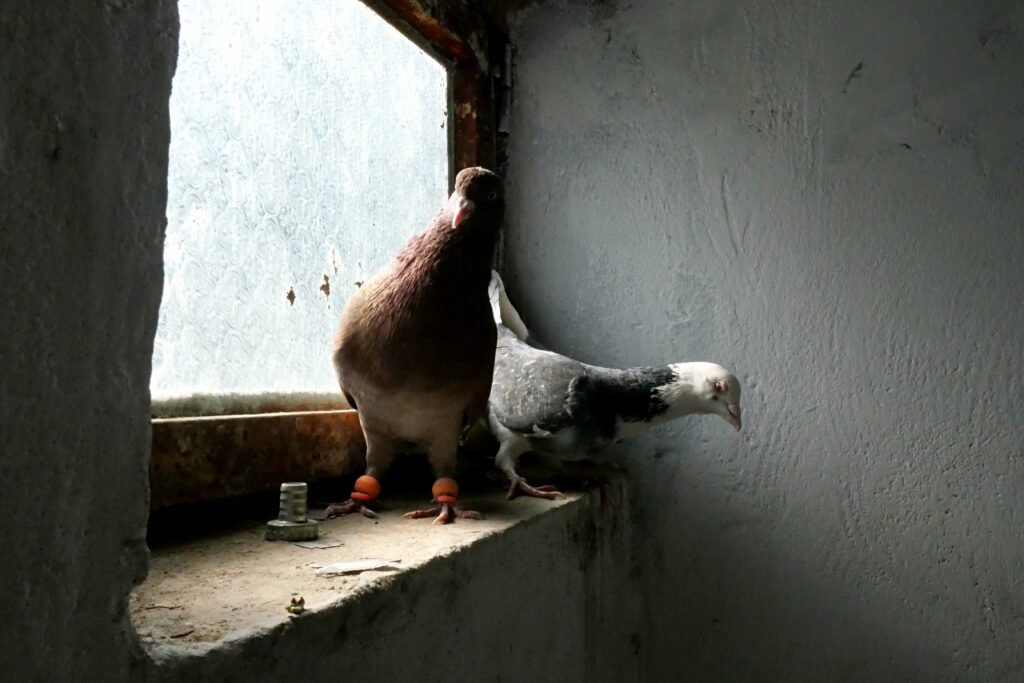
Nasir becomes shy when asked about neighborly disputes over pigeons — he says there are problems every now and again with fellow pigeon fanciers stealing one anothers’ birds, but generally things remain friendly.
Often ridiculed as being less educated or labeled as “dishonest” due to the skulduggery that can be associated with the ways in which bird collections are bolstered, the community has a bit of a bad reputation.
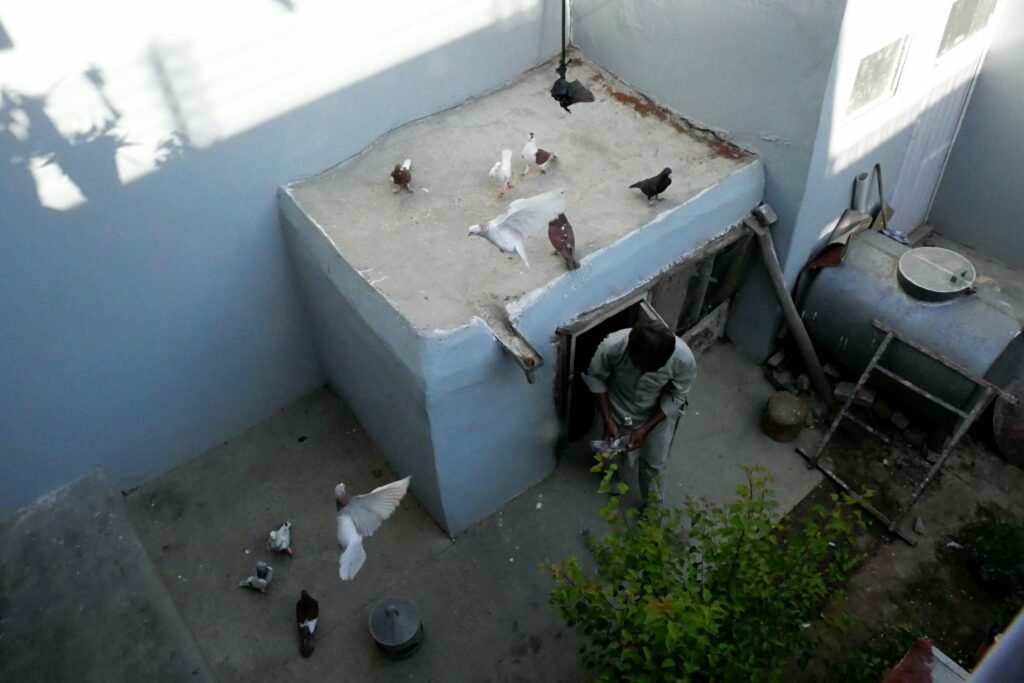
This (mis)labeling makes witnessing the close bonds the fanciers form with their birds all the more interesting, revealing an unexpected complexity.
Being asked about their birds can make even the quietest pigeon owner light up. It is as though a door is unlocked, revealing a side to someone that would have remained hidden had they not been asked about their birds.
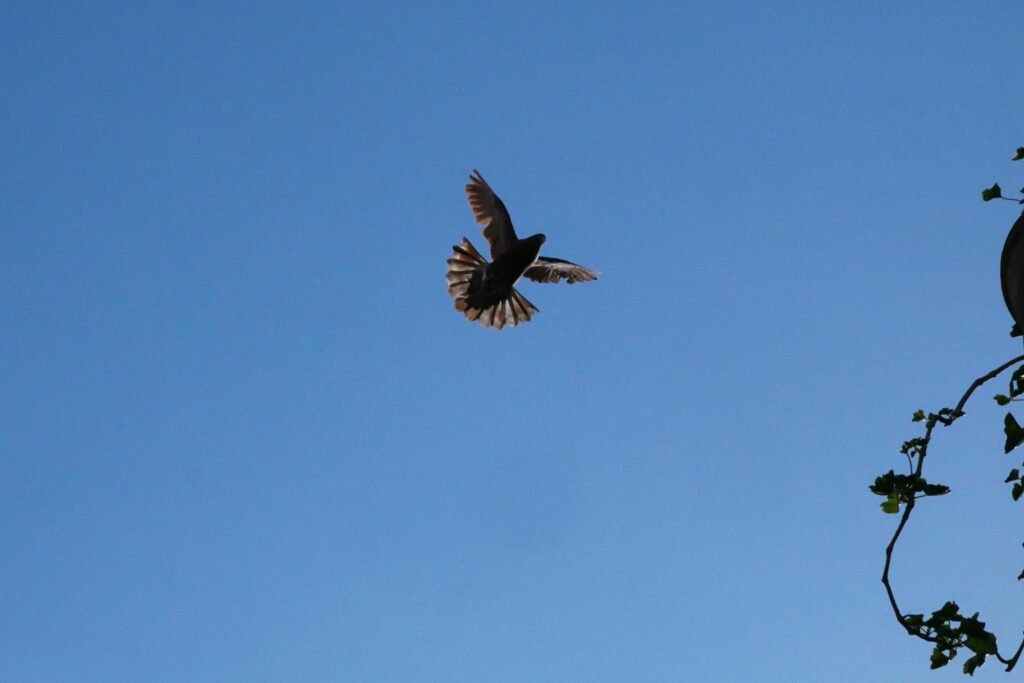
“I find it amazing how they can fly far from here but still know how to get home again. I love the fact they don’t want to desert their home here. They are loyal to me,” he says.

Charlie Faulkner is an independent journalist and photographer based in Afghanistan since the end of 2020. Prior to 2020, she was located in Jordan for two years, having previously spent time in Turkey , Greece, Hong Kong, Iraq and Palestine. She focuses on conflict, migration, economics, human rights, gender issues, the environment, and culture for VICE, TIME, The Guardian, The National. and more. She speaks conversational Turkish and Arabic, and is studying Dari. She has also written about and photographed pigeon fanciers in Amman, Jordan.
